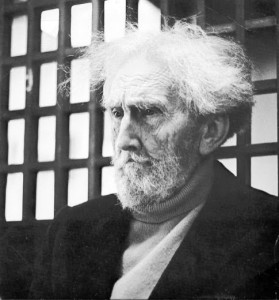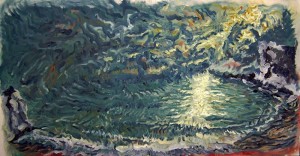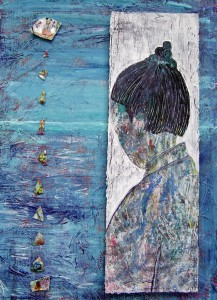
The Seafarer intoned in an ancient tongue, accompanied by a drum. Sparsely played, the drum conjured up fog and a vast space, or maybe the echoes of wind and waves. A baritone voice spun out the verses with an elastic tension that never let down. The syllables were musical notes of different values, creating rhythms. The Seafarer—the poem was the music. Spellbinding, it demanded attention. Listen!
Recorded in 1939, the reading was amazingly clear. Pound came alive to illustrate the power of poetry and speech. Thanks to the internet, we are privileged to have this and other great recordings at the tip of our fingers, to be inspired, to learn from, to enjoy.



